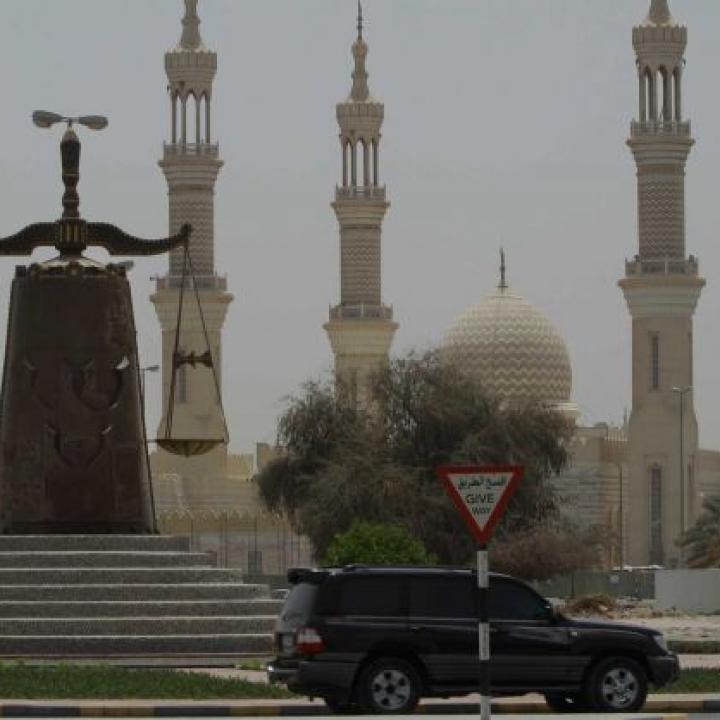

Secretary Kerry is quickly finding out that Gulf leaders view the region's challenges differently from the Obama administration and are not reluctant to show it.
In an apparently deliberate challenge to Washington, the United Arab Emirates has chosen the eve of Secretary of State John Kerry's visit to open the trial of ninety-four Islamist activists. The suspects -- who include judges, lawyers, academics, and student leaders -- are accused of plotting to overthrow the government, but Human Rights Watch has condemned the trial as a "mockery of justice."
Washington will find it difficult to believe that the timing is coincidental -- in some eyes, UAE officials seem to be making the point that U.S. support for Muslim Brotherhood-led governments in Egypt and Tunisia is misguided. This issue has been festering since the activists were first detained last summer. Like other conservative Gulf Cooperation Council states, the UAE regards emphasis on Western-style political freedoms as incompatible with its consensual-though-autocratic system of government. For these countries, talk of democracy is a distraction from what they regard as the region's principal challenge: the prospect of a nuclear-armed Iran.
The arrested activists are linked to a group called al-Islah (meaning "reform"), which the UAE regards as part of the Muslim Brotherhood. Earlier today, the country's Ministry of Justice announced that they are charged with "belonging to a secret illegal organization" that aims to "oppose the basic principles of the state's system of government in order to seize power." They are also accused of being in contact with foreign groups "with the aim of executing this plan." After today's hearing, the trial was adjourned until March 11. The evidence against the men, who have complained of being subjected to bright lights and hooded during their detention, has yet to be revealed; they did not receive access to lawyers until the past two weeks.
Differing attitudes toward the Muslim Brotherhood have emerged as a major irritant in otherwise very good relations between Washington and Abu Dhabi, the UAE's leading emirate. For example, at a time when Washington seems intent on engaging the Brotherhood-led government in Cairo, Abu Dhabi continues to grant asylum to Ahmed Shafiq, the former Egyptian prime minister and air force commander who unsuccessfully ran against Muhammad Morsi in last year's presidential election. Cairo has accused Shafiq of Mubarak-era corruption. Although the activist case was likely already on the agenda for tomorrow's talks with Kerry, the UAE may have opened the trial today to emphasize its views on the region's Islamist resurgence. The question now is whether the move will distract from the expected discussion on Iran.
The UAE is the second Gulf country that Secretary Kerry will visit. In Saudi Arabia today, he met with Crown Prince Salman, the heir apparent who is suffering from dementia. Kerry probably had a more useful exchange with Foreign Minister Prince Saud al-Faisal, though the latter implicitly criticized Washington for not giving sufficient support to the Syrian opposition at a subsequent news conference. Similar to the UAE's judicial move, the Saudis seemed intent on controlling Kerry's agenda: they invited the other GCC foreign ministers to meet him, issued a strong statement on Iran afterward, and scheduled a lunch with Palestinian president Mahmoud Abbas, where the discussion presumably covered the lack of progress in the peace process. In short, Kerry is quickly finding out that Gulf leaders view the region's challenges differently from the Obama administration and are not reluctant to show it.
Simon Henderson is the Baker fellow and director of the Gulf and Energy Policy Program at The Washington Institute.

